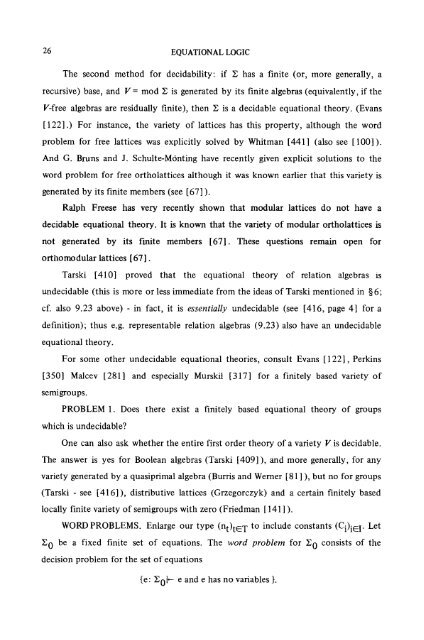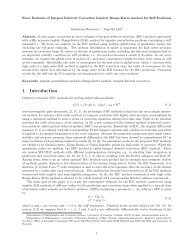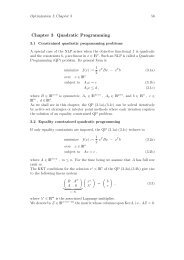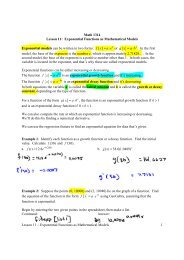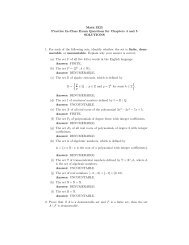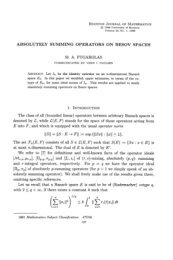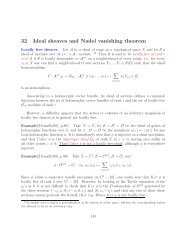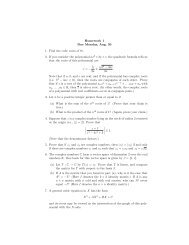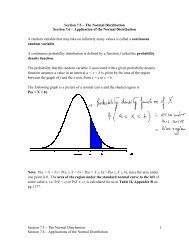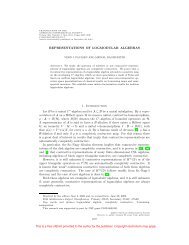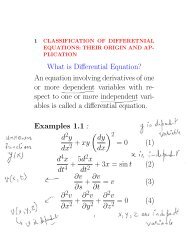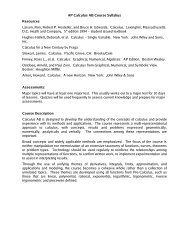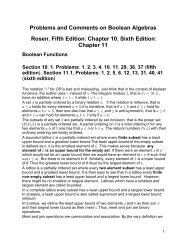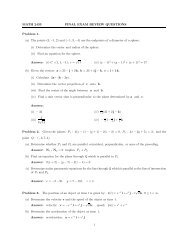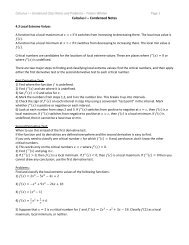Survey 1979: Equational Logic - Department of Mathematics ...
Survey 1979: Equational Logic - Department of Mathematics ...
Survey 1979: Equational Logic - Department of Mathematics ...
You also want an ePaper? Increase the reach of your titles
YUMPU automatically turns print PDFs into web optimized ePapers that Google loves.
26 EQUATIONAL LOGIC<br />
The second method for decidability: if 23 has a finite (or, more generally, a<br />
recursive) base, and V = rood 23 is generated by its finite algebras (equivalently, if the<br />
V-free algebras are residually finite), then 23 is a decidable equational theory. (Evans<br />
[122].) For instance, the variety <strong>of</strong> lattices has this property, although the word<br />
problem for free lattices was explicitly solved by Whitman [441] (also see [100]).<br />
And G. Bruns and J. Schulte-M6nting have recently given explicit solutions to the<br />
word problem for free ortholattices although it was known earlier that this variety is<br />
generated by its finite members (see [67] ).<br />
Ralph Freese has very recently shown that modular lattices do not have a<br />
decidable equational theory. It is known that the variety <strong>of</strong> modular ortholattices is<br />
not generated by its finite members [67]. These questions remain open for<br />
orthotoo dular lattices [ 67 ].<br />
Tarski [410] proved that the equational theory <strong>of</strong> relation algebras is<br />
undecidable (this is more or less immediate from the ideas <strong>of</strong> Tarski mentioned in õ6;<br />
cf. also 9.23 above) - in fact, it is essentially undecidable (see [416, page 4] for a<br />
definition); thus e.g. representable relation algebras (9.23)also have an undecidable<br />
equational theory.<br />
For some other undecidable equational theories, consult Evans [122], Perkins<br />
[350] Malcev [281] and especially Murskit [317] for a finitely based variety <strong>of</strong><br />
semigroups.<br />
PROBLEM 1. Does there exist a finitely based equational theory <strong>of</strong> groups<br />
which is undecidable?<br />
One can also ask whether the entire first order theory <strong>of</strong> a variety V is decidable.<br />
The answer is yes for Boolean algebras (Tarski [409] ), and more generally, for any<br />
variety generated by a quasiprimal algebra (Burris and Werner [ 81 ] ), but no for groups<br />
(Tarski - see [416]), distributive lattices (Grzegorczyk) and a certain finitely based<br />
locally finite variety <strong>of</strong> semigroups with zero (Friedman [ 141 ] ).<br />
WORD PROBLEMS. Enlarge our type (nt)tG T to include constants (Ci)iG I. Let<br />
230 be a fixed finite set <strong>of</strong> equations. The word problem for 230 consists <strong>of</strong> the<br />
decision problem for the set <strong>of</strong> equations<br />
{e: 2;01.- e and e has no variables }.


